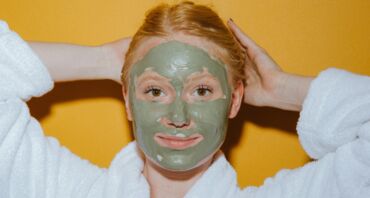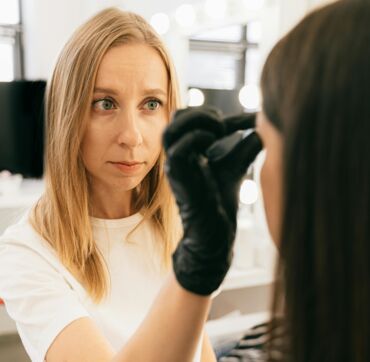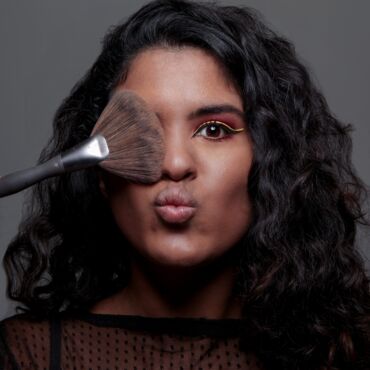Hair Salon Rules for Clients. What Should You Expect from Your Customers?
- Businesses/Owners
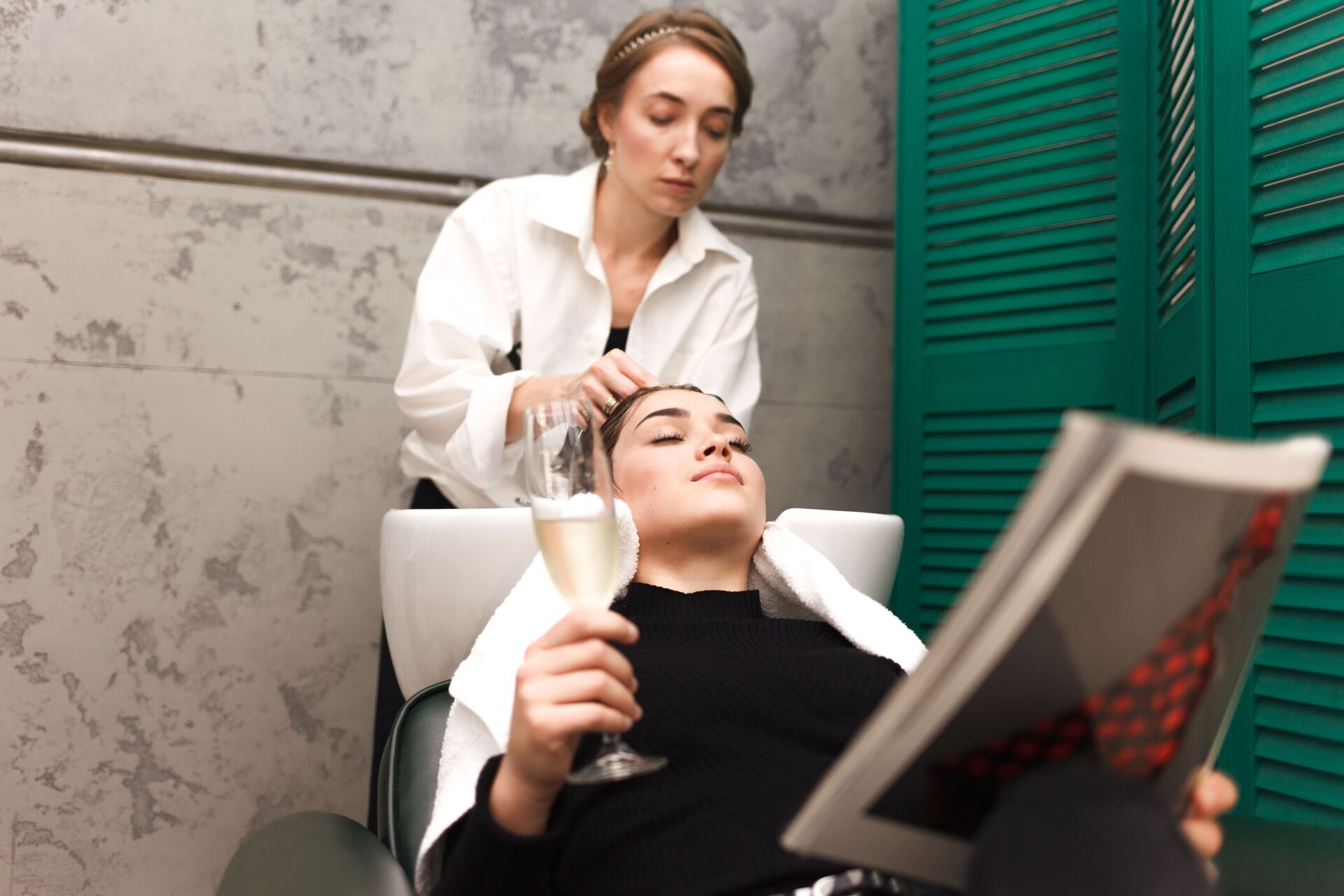

You follow so many hair salon regulations and rules, from organizational and licensing procedures to a carefully crafted manual, through safety protocols.
However, it’s not only you who should follow certain guidelines. Yes, clients pay for your services and are entitled to having a good experience at your salon - but that doesn’t mean they should be allowed to do whatever their hearts desire. As the salon owner, you not only can but should, set your own salon policies and require customers to follow them. What can you expect from your clients, how should you communicate your rules and what traps do you have to avoid? Let’s get straight into it!
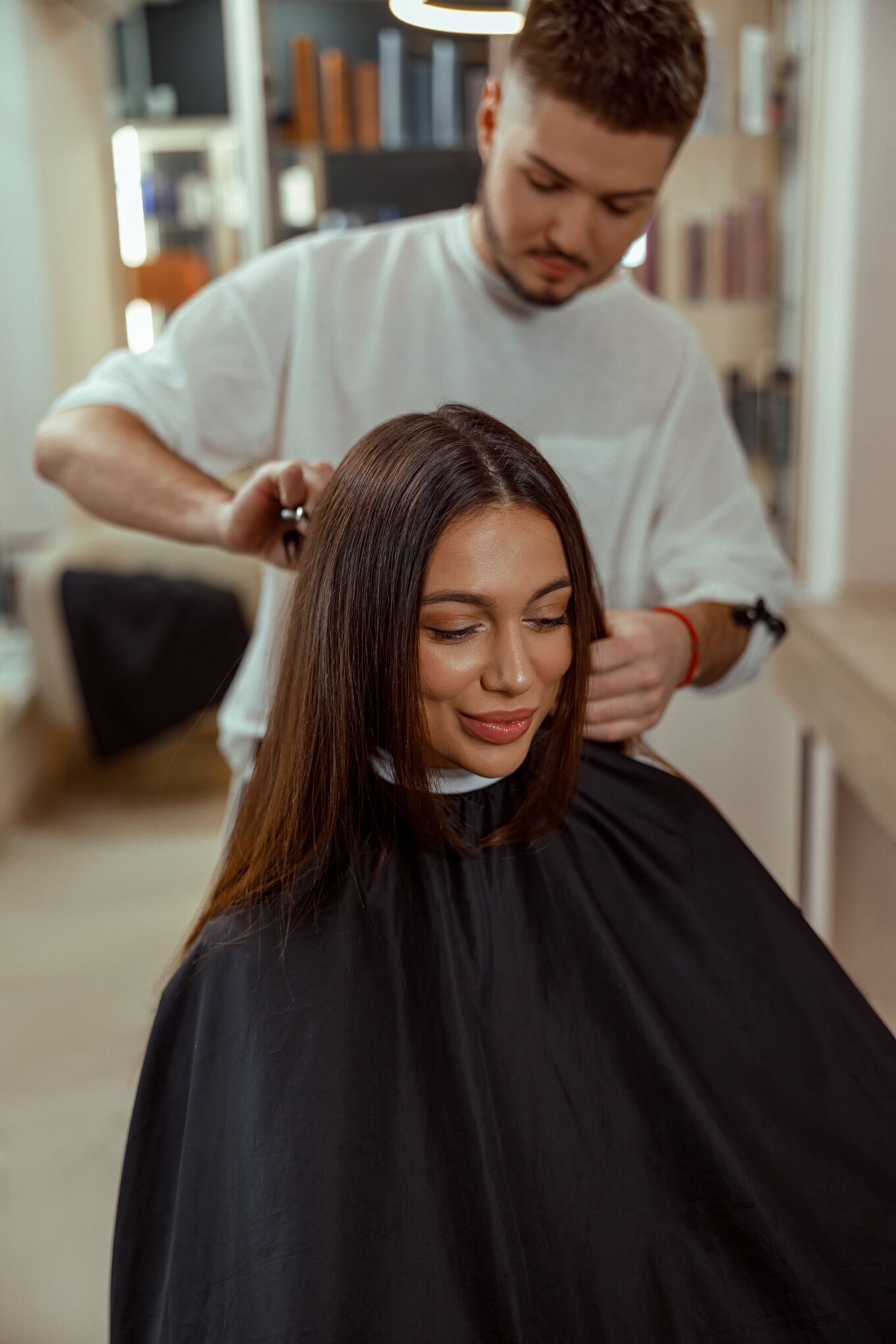
Why are hair salon rules and regulations important?
Let’s begin by stating some important facts. Hair salon regulations are supposed to make your business a safe place for both your employees and customers. They include protocols for dealing with health hazards, rules for salon performance, and disciplinary policies. However, salon policies that focus on your clients’ behavior are just as important. They safeguard you from difficult or even dangerous situations, decrease the risk of accidents, and promote the smooth performance of your business.
Hair salon rules and discrimination - salon policies according to the law
Now you may be asking: what is reasonable and legal when it comes to expecting certain behaviors from my clients?
The main thing to consider is that your policies cannot discriminate against anyone - meaning: you cannot treat clients differently because of their race, sex, gender, nationality, religion (or lack thereof), age, or disability. You are in the right to create policies that are supposed to ensure the safety of your property as long as they are reasonable and not based on harmful assumptions against any group of people.
What does it mean in practice?
Let’s take an example. You can (and even are legally obligated to!) refuse service to a person who is drunk, as they pose an immediate threat due to their intoxicated state. But you cannot refuse service to a person of another ethnicity, for example, just because you believe “they cannot be trusted”. This is discrimination, which goes against the law and, just as importantly, morality. Of course, if someone actually exhibits aggressive behavior, you are 100% entitled to defend yourself and ban this person from your business, regardless of their race, nationality, or sexual identification. But such things should always be based on a person’s real actions, not assumptions.
Another important example would be ageism. You are in the right to make your salon adult-only. Now you may ask - isn’t it discrimination based on someone’s age? In this case, you are justified, as this policy is not based on an unjustified assumption, but comes from a place of concern. In some cases, a salon could be a dangerous environment for children, and therefore, denying them entrance would be the right thing to do. However, if you were to disallow people 50+ from your premises because “they only want boring things done and I want my salon to be cool”, this would be considered discriminatory.
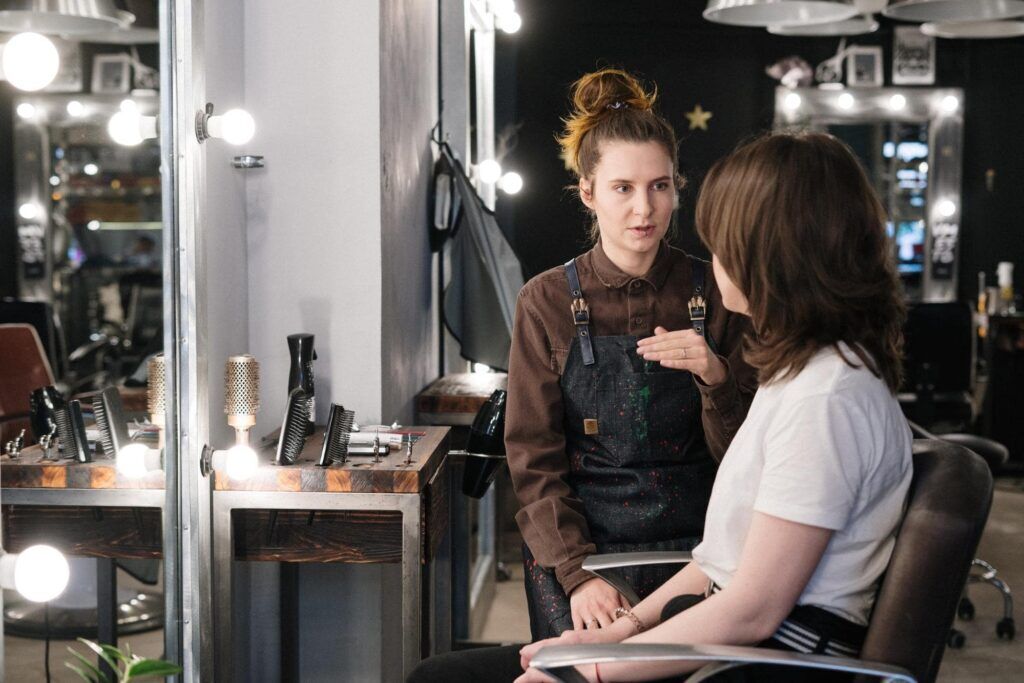
What should you expect from your hair salon clients?
Once we have the basics cleared up, we can discuss the specifics. What are the best salon policies for your clients to set you up for success.
No-shows
Most hair stylists prioritize one important question: how to reduce no-shows. No-shows waste your time and bring financial losses, especially if the abandoned appointment was supposed to be long and advanced (nothing hurts like a three-hour balayage session that didn’t happen). However, you don’t have to just “deal with it” - you are in the right to demand that your clients let you know in advance if they have to cancel. What’s more, it's up to you to define the fee for failing to meet your requirements. Of course, sometimes no-shows aren’t intentional, being a consequence of an accident or sudden illness, so it’s important to stay sensitive, particularly for your regular clients. However even with a loyal client, more than one instance of not showing up or the lack of a proper apology is enough of a reason to exercise your rights.
Psst - it’s not only salon policies that can safeguard your business from irresponsible customers. Did you know that using hair salon software that sends automatic appointment reminders to clients can reduce the number of no-shows by up to 70%? Furthermore, Booksy offers No-Show Protection features, such as Prepayments and Cancellation fees. Start your free trial with Booksy now and enjoy the additional protection!
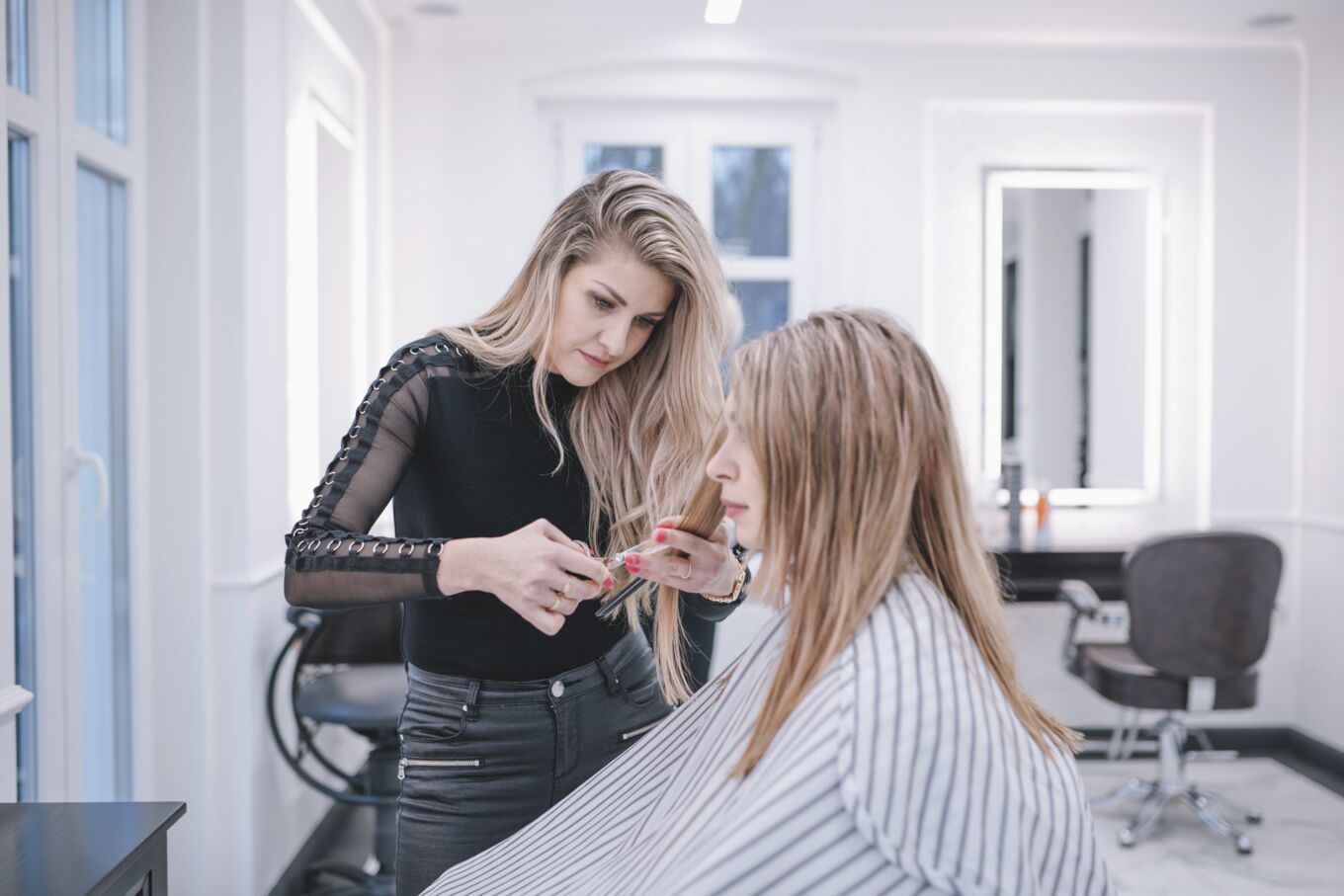
Late cancellations
Similarly to no-shows, late cancellations also cause you to lose time and money. It’s is up to you to decide the hair salon cancellation policy – your salon’s deadline for informing you about the cancellation, though at least 24 hours before the appointment time is fairly standard, as well as the consequences of failing to comply, which could be a flat fee or a percentage of the services that were booked.
Late arrivals
Living our busy lifestyles, we all end up running late from time to time. Unfortunately, a significant delay on the client’s part may negatively impact the quality of their appointment and even mess with your schedule for the rest of the day. Once again, having a clear late policy for clients (5-10 minutes would be considered fairly standard) reduces late arrivals. In addition to deciding how late a client can be for an appointment, your late policy should clearly state if there is a fee for repeated late arrivals. Consider allowing different delays for different services - after all, there is a difference between being 10 minutes late for a three-hour appointment and a 15-minute one!
Hiding relevant information
Some health issues (including allergies) can be a contraindication to getting a certain service done, as they may either negatively affect its final effect, or even be straight-up dangerous. This is why it is absolutely crucial to let your clients know that they have to give you a heads-up if they suffer from these issues and make this part of your client rules for the salon part of your new client onboarding process.
It’s key to emphasize that you are not asking for such personal information out of curiosity but with their health and safety in mind. Remember, customers may not be aware which health issues, allergies, or medications can be the culprit - it is one of many hair salon manager responsibilities to deliver clients a list of possible contraindications. Included in this list can be services they received previously that don’t allow for certain treatments. Failing to provide and collect this information may result in a lawsuit for professional negligence.
Payment refusal
Unfortunately, it does happen - a client wasn’t satisfied with the final result of a service you provided and the customer refused to pay. While we may not be able to prevent these situations from arising, having a clear and prominent refund policy in place so you know what to do if the client refuses to pay. This salon rule should clearly state that all service sales are final and thus have to be paid for, and any theft of services will be prosecuted. Such a policy needs to explain what is the deadline for informing you about the dissatisfaction from the visit and what remedies might be available if they are unhappy.
Aggression
Some salon rules for clients are very straightforward. No one should ever be allowed to be aggressive towards you, your employees, or other clients - verbally or physically. Responding to aggressive behavior as a salon owner is your responsibility. The moment the client starts harassing, calling names, threatening, or becoming too handsy, you are absolutely in the right to stop performing a service and demand that they leave your premises with no refund. Client or not, aggressive behavior cannot be tolerated under any circumstances. Do not feel pressure to “suck it up”. Stand up for yourself, call for help if necessary, and don’t shy away from reporting such behavior!
Prohibited company
Finally, let’s talk about people (and not exactly people!) whose company may not be welcome in your hair salon. We’ve already briefly touched upon the issue with children. For more details, read our article on establishing a child policy in your salon, and remember that it’s you who decides whether or not you want your business to be family-friendly or adult-only (or anything in between).
It’s a similar story with pets - it’s you who decides if you want your premises to allow the fuzzy company (once again, for more details, check our article on pet-friendly salons). The only situation in which you have a duty to let an animal in is when the pet in question is an Assistance Animal.
Lastly, you can also clearly state how many people can accompany your clients when they are getting their hair done. No one wants an entire family hovering around your workstation and commenting on how good the color came out - if you have issues with an unwelcome crowd, set a rule limiting the number of possible “extras'' to one, and restrict them to sitting in the waiting area.
You cherish your clients, but even the nicest of them can sometimes break your boundaries, even if unintentionally. Clear salon rules will help you maintain proper relations with them, make your working environment more healthy, and allow everyone to have a much better experience at your salon. You and your employees included!


